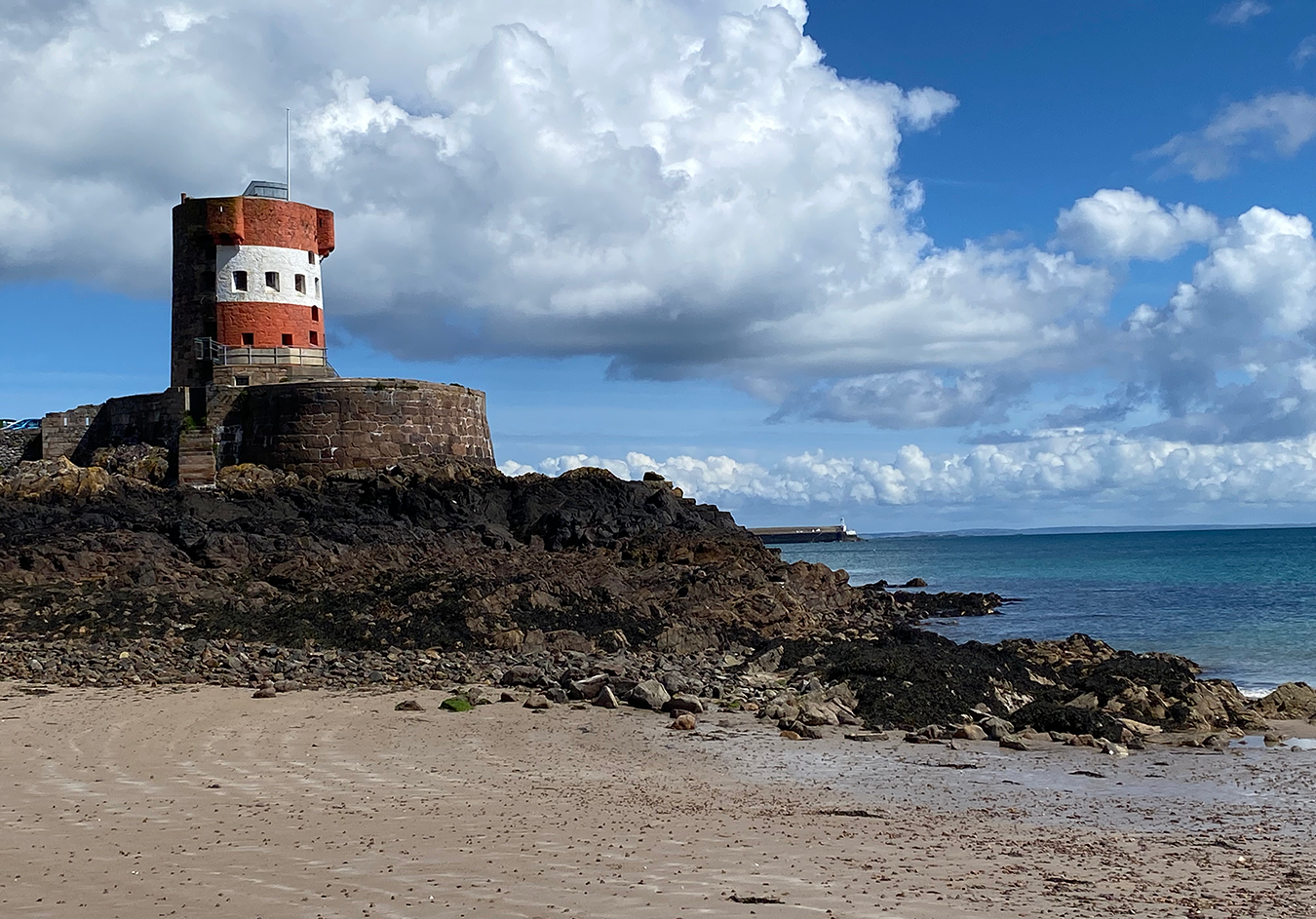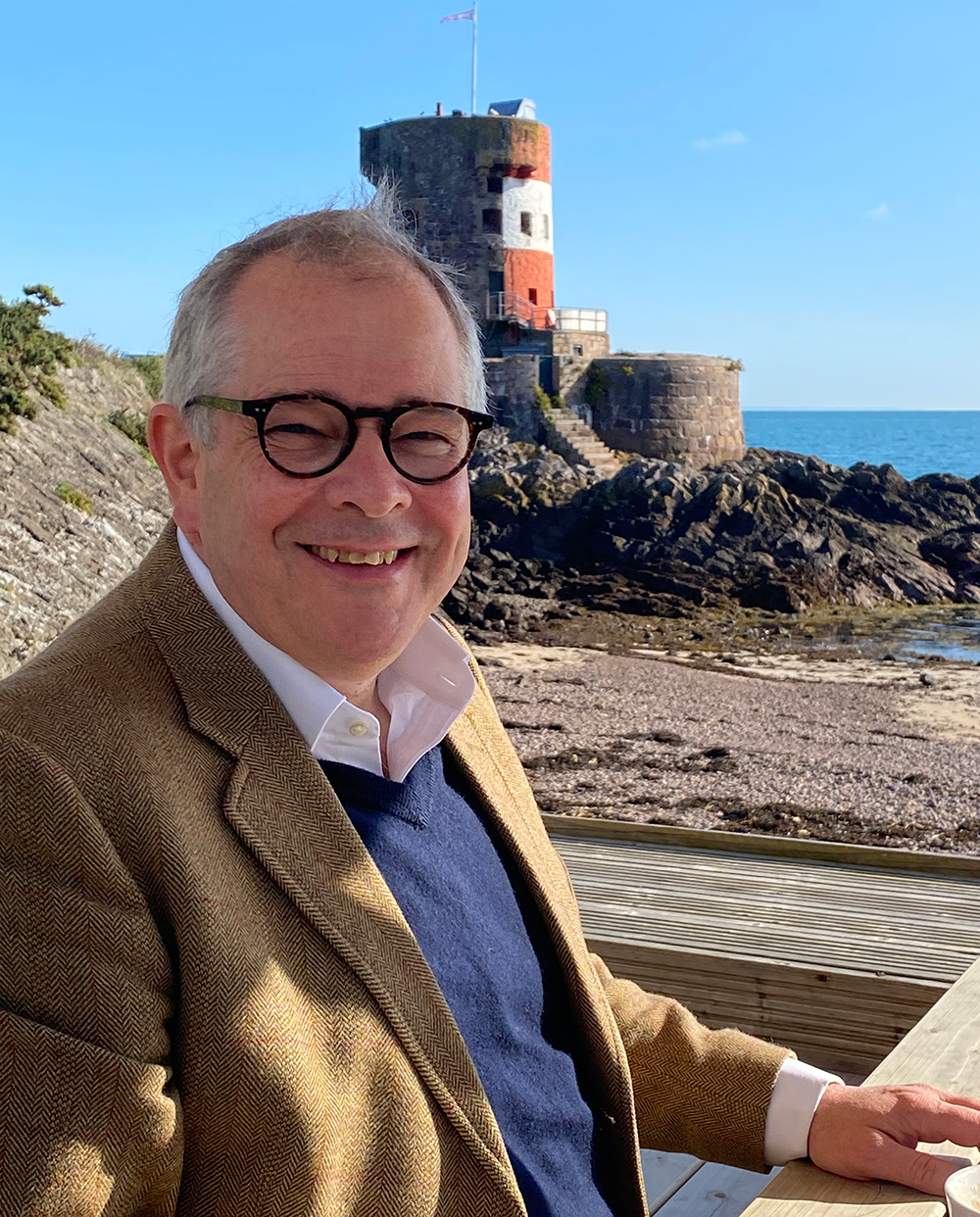
The Channel Islands, like the coast of Sussex, has always been important to the defence of the British Isles. Since Norman times our defences together with the English Channel, our island’s moat, have kept us safe from invasion. From the late 18th century and throughout the first half of 19th century the Martello Tower was used both in Sussex and the Channel Islands.
These circular forts stand up to 40 feet high. Their circular construction and thick masonry walls made them resistant to canon fire. They would be manned by an officer and 15-25 men. Provisions and ammunition were stored on the lower levels and a canon was placed on the top allowing them to fire through 360º in defence of their position. The Martello Towers were inspired by the circular towers built by the Corsicans from the 15th and 16th centuries onwards in defence of pirates. The Genoese built later towers. The British Navy encountered these during the French Revolutionary Wars. In 1794, as part of the siege of Saint-Florent, the 72 gun HMS Fortitude and the 32 gun HMS Juno failed to defeat or even mark the tower at Mortella Point after engaging it with canon fire for over 2 1/2 hours. It would eventually fall to an attack from the land under the command of Sir John Moore after two days of heavy fighting. Impressed by the effectiveness of the fort the British copied its design and in true British style misspelt Mortella and called their forts Martello Towers.

Jersey in the Channel Islands has always been considered strategically important and heavily defended. You will find Martello Towers all around her coast line. My favourite is the example at Archirondel Bay on the North East of the Island. The Tower sits confidently on its promontory with St Catherine’s breakwater and the French coast in the distance. Archirondel is a precious place to my wife’s family. It is where her grandparents made their home after they returned to the island of Jersey after its liberation from the Germans on the 9th May 1945, a day after the surrender of their forces in Europe. They had cause to flee the island as Grandma was English. Many of their friends and relations stayed and lived under Nazi rule. To reflect on our own history across the centuries perhaps provides a timely reminder of the importance and costs of defending our freedoms, values and nation.